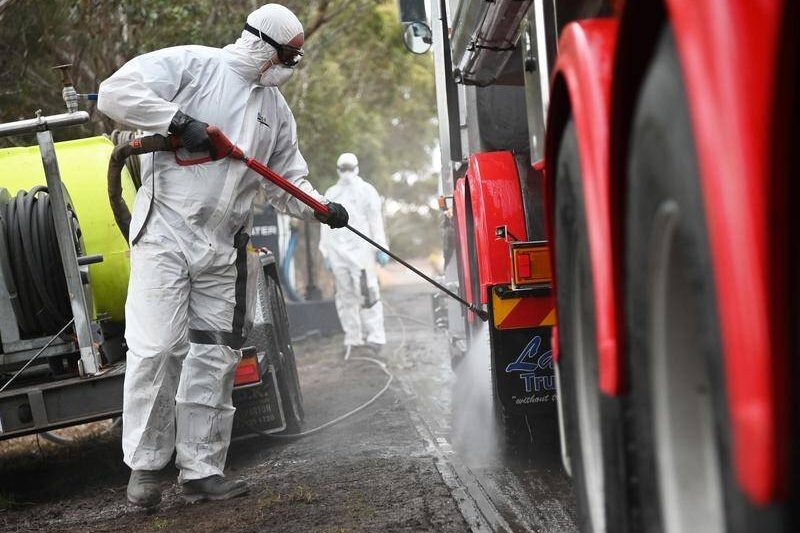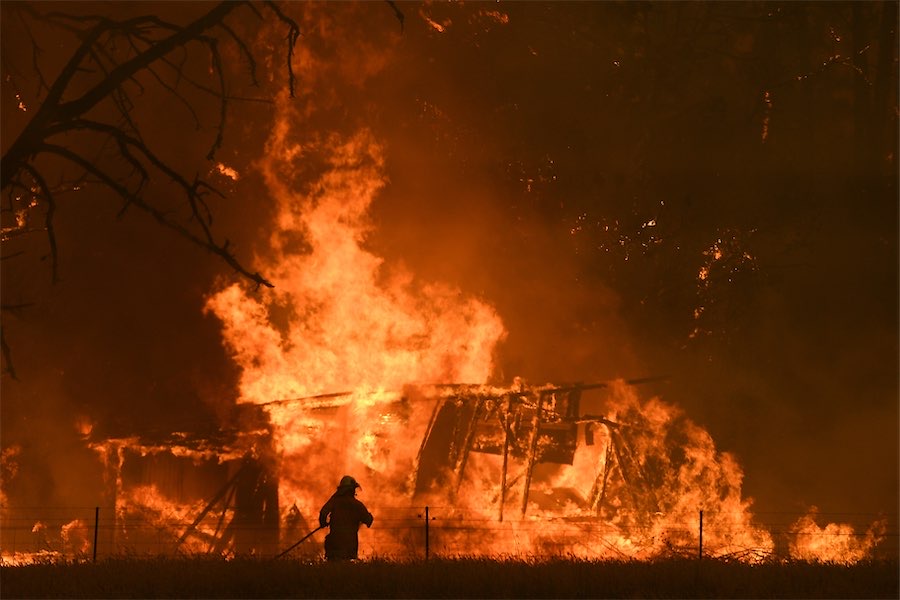
By Cassandra Morgan and Alex Mitchell
Australia’s bird-flu outbreak has worsened with a strain of the disease detected on a NSW egg farm after being found on seven properties in Victoria.
The NSW government confirmed on Wednesday that avian influenza had been picked up in the Hawkesbury district, north of Sydney, although the strain was different to that detected in the southern state.
There, more than one million chickens and ducks will die in an effort to minimise the ultimate destruction caused by multiple outbreaks.
Highly pathogenic strain H7N3 was found at a seventh Victorian farm – already in quarantine – in the Golden Plains Shire in the state’s central west, Agriculture Victoria revealed during the week.
The H7N8 strain found in NSW was believed to be a “spill-over” event, possibly from wild birds.
NSW officials engaged the state’s emergency biosecurity incident plan, sending the farm into quarantine and triggering movement controls in the area.
It noted that the highly-pathogenic disease spread quickly and had a high mortality rate amongst poultry birds, requiring the farm lockdown.
Consumers should not be worried about eggs and poultry from the supermarkets, and the outbreak did not pose a risk to public health, the government said.
“The government will work closely with industry to reduce the risk of spread and minimise any impact on egg supply,” a statement said.
Meanwhile, all poultry at the Golden Plains farm will be humanely disposed of under veterinary supervision while movement controls remain in place near Terang, Meredith and Lethbridge, Victorian authorities said.
“We’re continuing to work with affected producers and the poultry industry to respond to these detections through ongoing testing and careful biosecurity practices,” the state’s chief veterinary officer, Graeme Cooke, said.
“Movement restrictions are expected to be in place for several weeks, and we’re working with industry to support poultry farmers with the logistical challenges they’re facing.”
Most of the properties affected have chickens but a duck farm in Golden Plains Shire that produces eggs and meat, and was already in quarantine, was confirmed to have the virus on June 13.
Agriculture Victoria continues to assure consumers not be concerned about eggs and duck meat products as they are safe to consume.
Six of the infected properties near Meredith are confirmed to have the H7N3 strain of avian influenza and one infected property near Terang has the H7N9 strain.
Neither is the H5N1 strain that has infected billions of wild and farmed animals globally, raising fears of human transmission.
The World Health Organization revealed on June 5 that a two-year-old girl in Melbourne who had recently travelled from India had to be put in intensive care in March after falling sick with the H5N1 strain.
The case was confirmed by local health authorities in May.
While it was possible for humans to contract avian influenza viruses when in direct contact with infected animals, Agriculture Victoria said the current risk to the public remained extremely low.
Who can be trusted?
In a world of spin and confusion, there’s never been a more important time to support independent journalism in Canberra.
If you trust our work online and want to enforce the power of independent voices, I invite you to make a small contribution.
Every dollar of support is invested back into our journalism to help keep citynews.com.au strong and free.
Thank you,
Ian Meikle, editor





Leave a Reply